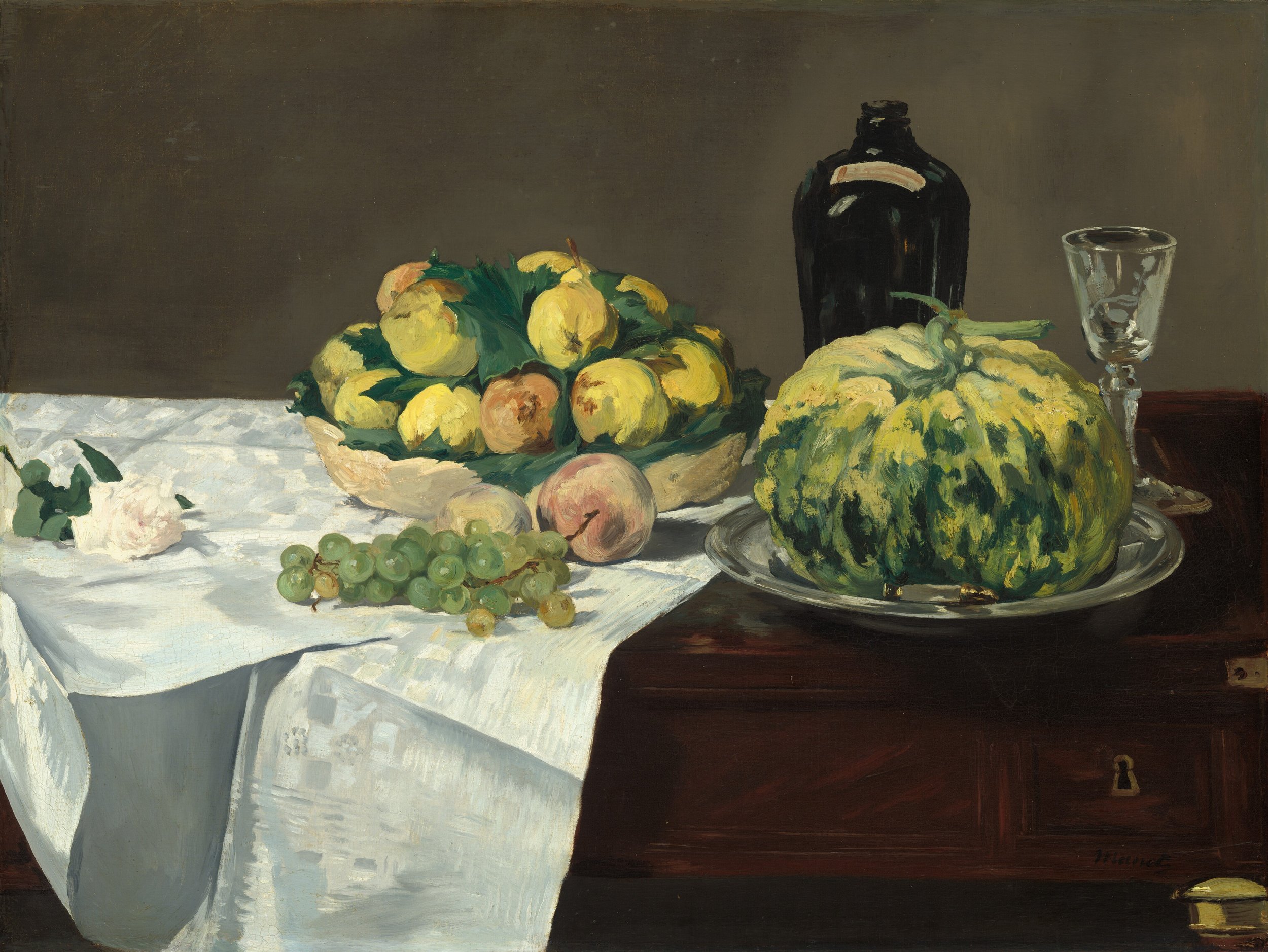Insights from Good Housekeeping's Ultimate Guide to Decluttering
Still Life with Melon and Peaches. Edouard Manet, 1866. Courtesy the National Gallery of Art, Washington.
Refined living begins not with what we own, but with what we mindfully release.
In our pursuit of a refined life, we often focus on acquiring the best: the best wardrobe, the best décor, the best experiences. Yet, sometimes, the key to a more fulfilling existence lies in subtraction rather than addition. Decluttering isn't just about tidying up; it's a powerful tool for creating space, clarity, and a sense of calm.
Good Housekeeping's Ultimate Guide to Decluttering offers a wealth of practical advice and insights that align perfectly with the principles of intentional living. To further underscore the importance and impact of decluttering, their recent survey provides some compelling statistics:
Key Insights from the Good Housekeeping Clutter Survey
The Good Housekeeping survey delved into our decluttering habits and feelings, revealing some fascinating insights:
The Overwhelm is Real: While a significant 95% of respondents reported that they do declutter, nearly a third (29%) admitted to feeling overwhelmed and apprehensive before starting. This highlights the emotional hurdle many face when confronting clutter.
Indecision is the Enemy: A staggering 47% of those surveyed struggle the most with deciding what to get rid of. This indecisiveness can lead to the dreaded "churning" – moving items around without actually making a decision about their fate.
Time is a Barrier: For 38% of respondents, the perceived time commitment of decluttering is a major deterrent. This emphasizes the need for manageable strategies and a shift in perspective towards viewing decluttering as an ongoing process rather than a monumental task.
Emotional Baggage: Sentimentality plays a significant role in our attachment to clutter, with 54% admitting to holding onto items they don't need due to nostalgic or emotional reasons. Understanding this emotional connection is crucial for a more compassionate approach to decluttering.
The "Floordrobe" Phenomenon: Highlighting a common clutter culprit, the survey indirectly points to the issue of overcrowded wardrobes, with almost a fifth of people admitting to buying clothes they don't need simply because they've forgotten what they already own.
These statistics underscore the emotional and practical challenges associated with clutter and reinforce the need for effective decluttering strategies that address both the physical and psychological aspects of our belongings.
Understanding Your "Why"
Before diving into the mechanics of decluttering, it's essential to understand your motivation. As the guide points out, decluttering can improve your mood, reduce stress, and even boost productivity. When you're clear on why you want to declutter, you're more likely to stick with the process and achieve lasting results.
Tackling Clutter Hotspots
Certain areas of the home tend to accumulate clutter more than others. The guide identifies these "clutter hotspots" as:
Surfaces: Countertops, tables, and desks often become dumping grounds for everyday items.
Storage spaces: Drawers, closets, and cabinets can easily become disorganized and filled with things we no longer need or use.
Paperwork: Mail, documents, and miscellaneous papers can quickly pile up, creating visual chaos and mental overwhelm.
By focusing on these key areas, you can make a significant impact on the overall clutter level in your home.
Decluttering Strategies for the Modern Homemaker
The guide offers a range of decluttering strategies, from quick daily tasks to more in-depth organizational projects:
Daily Tidy: Incorporate small decluttering tasks into your daily routine, such as making your bed, wiping down surfaces, and putting things back in their place.
One-Touch Rule: Handle each item only once to avoid creating piles.
Zoning: Divide your home into zones and declutter one zone at a time to make the task more manageable.
Decluttering Questions: Ask yourself key questions to help you decide what to keep, such as "Do I use this regularly?" and "Does this bring me joy?"
The Refined Approach to Letting Go
Decluttering isn't just about getting rid of things; it's about making conscious choices about what deserves a place in your home and life. The guide encourages a thoughtful approach to letting go, suggesting that you donate, sell, or recycle items whenever possible. This aligns with the values of sustainability and mindful consumption, both essential aspects of a refined lifestyle.
Ultimately, decluttering is an act of self-care. By creating a calm, organized, and clutter-free home, you create a haven for yourself and your loved ones. A refined life begins with a refined space, one that supports your well-being and reflects your values.
Check out Good Housekeeping's Ultimate Guide to Decluttering here.

